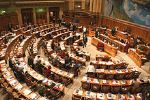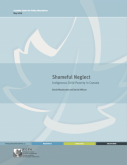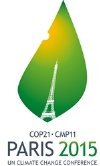Social Watch News
Published on Sun, 2016-06-05 21:09
The successful implementation of the 2030 Agenda requires bold and transformative steps that are urgently needed to shift the world on to a sustainable and resilient path. In order for it to be a collective journey, on which no one should be left behind, the scale and ambition of the 17 Sustainable Development Goals and 169 targets require a broad and integrated approach not only to balancing and realigning the normative architecture of the global economy but also to restructuring regional and national political-economic practices. Politics as usual and economics as the determined by the rich and powerful will have no place on this new path. Merely tinkering with uncomfortable edges of the micro-economic status quo will not do. The historical direction and social-structural content of such a shift will involve the modification of the deep structures of poverty in the periphery economies up to and including addressing the different aspects of state autonomy and the underlying democratic deficits that stand on the way of building sustainable national economies. |
|
Published on Fri, 2016-06-03 21:21
» |
Published on Thu, 2016-06-02 21:22
The connection between civil and political rights and tax policy is so strong, that in a 2014 report on tax policy and human rights (“the report”), the UN Special Rapporteur on Extreme Poverty and Human Rights in 2014 said that the link runs both ways. That is, civil and political rights bear consequences for tax policy. But the formation of accountable states is closely tied to the emergence of taxation. And where tax abuse and unfair tax practices erode confidence in government the environment will be less prone to foster the right to take part in the conduct of public affairs. |
| Published on Sat, 2016-05-28 16:56 |
Published on Thu, 2016-05-26 17:20
Every country and every region has something to do in the new global Agenda 2030, said Social Watch coordinator Roberto Bissio in Berlin, interviewed by Internationale Politik und Gesellschaft (IPG). Bissio said that ithe new agenda is more comprehensive. The rich countries are not only required to provide aid but also to introduce changes at home and to look at the footprints they leave, the impact of what they do internally in the global atmosphere, the oceans and the economy. "It is also an Agenda that provides major opportunities for us as citizen groups to interpelate our governments and ask policy makers what are you doing about this agenda that is relevant for all of us." |
Published on Wed, 2016-05-25 13:52
The commodity slump has cooled the global land rush. But land rights are still under pressure, requiring action at local to global levels. The commodity price hikes of 2007-2008 and the ensuing wave of transnational land deals for agribusiness investments in low and middle-income countries placed land rights at the centre of international development discourses. In many agrarian societies land underpins livelihoods, social identity, political power and the collective sense of justice. Land is also a recurring source of conflict. So addressing land rights issues is a welcome development priority. But pressures on land rights in low and middle-income countries are changing, for three reasons. |
Published on Fri, 2016-05-20 17:59
A few weeks ago the Finance Committee of the National Council moved for Switzerland's official development assistance to be reduced to 0.4% or even 0.3% of gross national income over the coming years. That would mean cutting expenditure on actual development cooperation abroad by 30% to 50%. Care of asylum seekers here at home, which Switzerland absurdly counts as development spending, would then account for one fourth to one third of this expenditure. In the National Council itself, the Finance Committee's radical cost-cutting proposals will hardly find a majority. It transpires from centre-right circles, however, that a call will indeed be made for cost-cutting in long-term development programmes in order to release more funds for short-term emergency humanitarian aid. The call will also be for development cooperation to be more closely tied to Switzerland's own interests, namely to migration partnerships and agreements for the repatriation of asylum seekers. |
Published on Fri, 2016-05-20 10:23
Canadian Centre for Policy Alternatives (CCPA) launches the report "Shameful Neglect: Indigenous Child Poverty in Canada". The report calculates child poverty rates in Canada, and includes the rates on reserves and in territories—something never before examined. The report also disaggregates the statistics and identifies three tiers of poverty for children in Canada, finding the worst poverty experienced by status First Nation children (51%, rising to 60% for children on reserve). The second tier encompasses other Indigenous children and disadvantaged groups (ranging from 22-32%), and the third tier consists of children who are non-Indigenous, non-racialized and non-immigrant, where the rate of 13% is similar to the OECD average. |
Published on Fri, 2016-05-20 09:59
The first inter-sessional meeting of the United Nations Framework Convention on Climate Change (UNFCCC) after the adoption of the Paris Agreement at the 21st Conference of the Parties (COP21) in Paris last year, opened in Bonn on 16 May. H. E. Mr. Manasvi Srisodapol of Thailand, the Special Representative of the Chair of the Group of 77 and China on Climate Change, speaking for the Group said as Parties move into the implementation of the Paris Agreement, the delicate balance of all issues achieved in Paris as well as the principles and provisions of the Convention must be preserved. |
| Published on Fri, 2016-05-20 00:00 |
SUSCRIBE TO OUR NEWSLETTER








